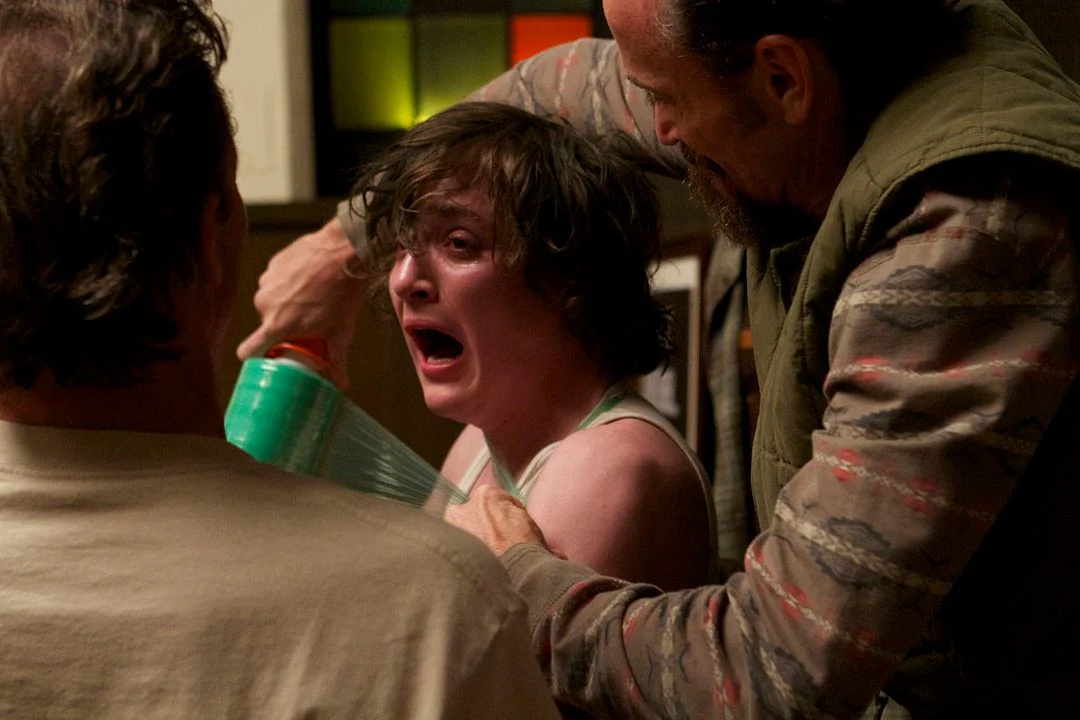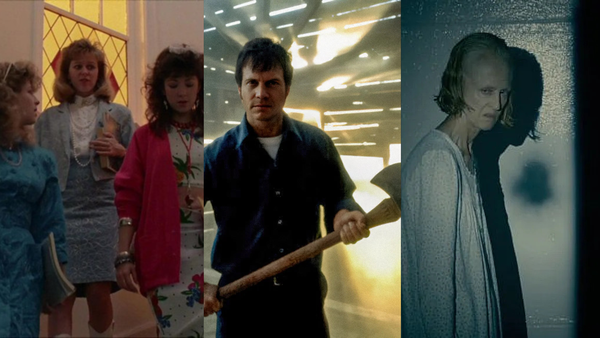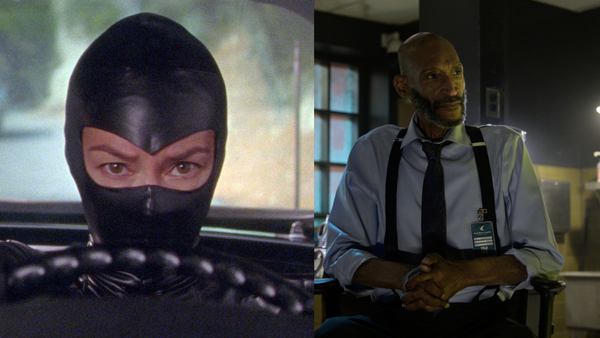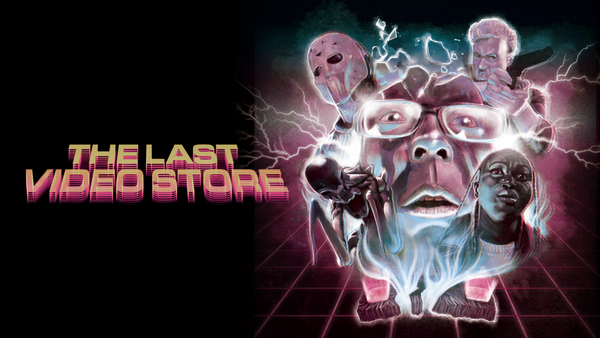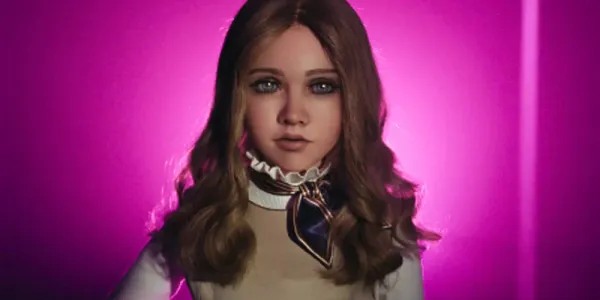Indie Horror Hall of Fame: Red State
Kevin Smith's first foray into genre filmmaking pulls no punches
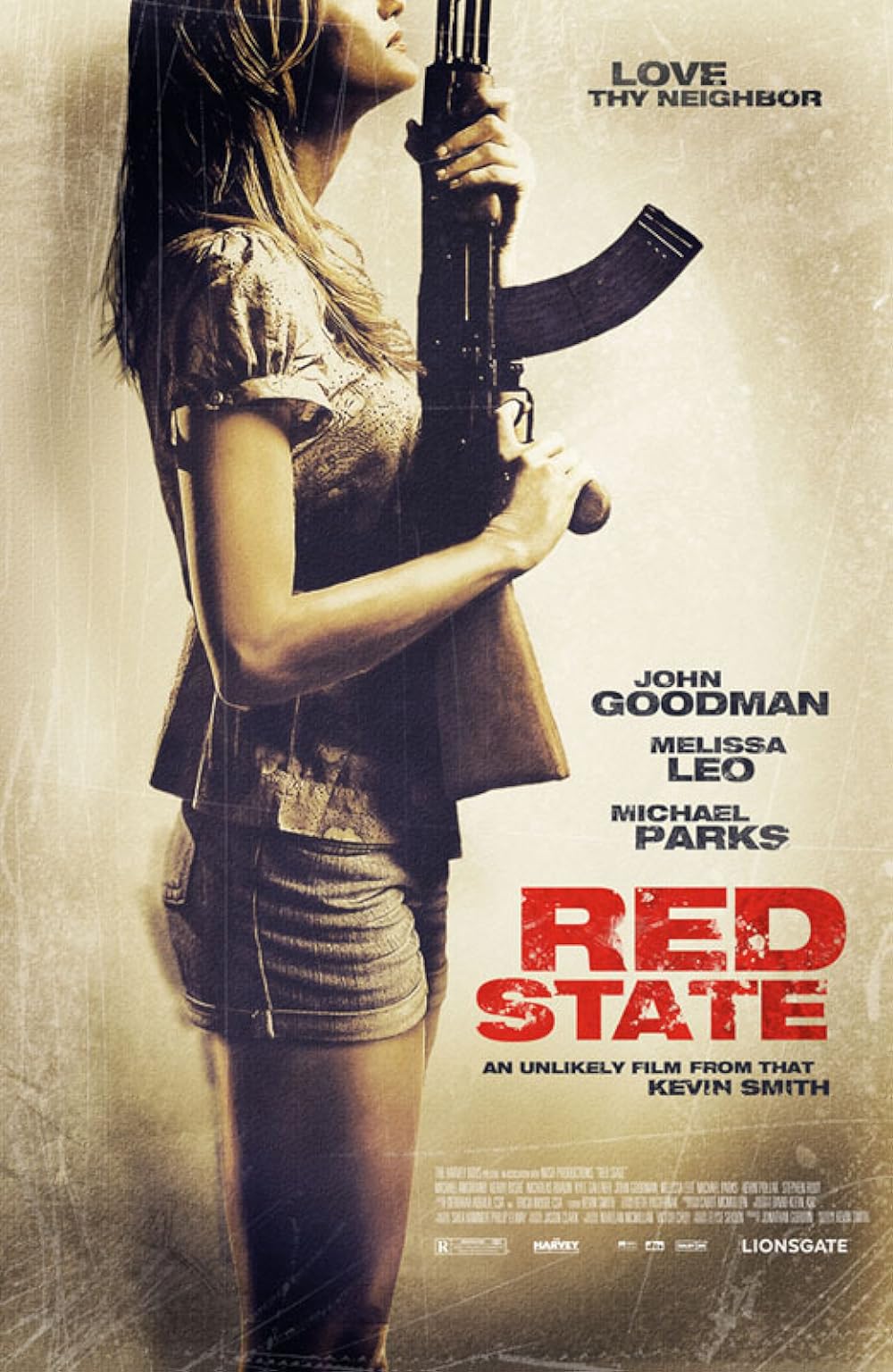
I can distinctly remember the first time I ever watched writer/director Kevin Smith's Clerks. It was the summer of 1995 and it had become a buzzworthy flick for a lot of kids in my generation so we were anxious to see what all the fuss was about when Smith's micro-budget directorial debut hit home media.
At that point in my life, I had been working at a local White Hen Pantry for a few years (think 7-11 minus the Slurpees, but throw in a fully stocked deli for good measure), and a copy of Clerks was making the rounds amongst the staff there because it was the kind of movie that immediately clicked with all of us. Its gritty, odd-ball look at life in a convenience store mirrored my own rather closely (the milk maidens were people I encountered at least once during every shift), and Clerks still remains to this very day one of my favorite movies (outside horror) of all time.
Since Clerks, I've watched Smith flourish as a moderately successful, albeit sometimes frustrating, filmmaker. For better (Chasing Amy, Dogma, Mallrats, Jay & Silent Bob Strike Back, Clerks 2, Tusk) or worse (Jersey Girl, Cop Out) and everything in between (Zack and Miri Make a Porno, Yoga Hosers), Smith has never been the kind of guy who's afraid to pull any punches when the subject matter calls for it.
And with Red State, he pulls out all the stops to create a visceral gut-punch viewing experience that is nerve-shredding to say the very least. It’s not a perfect movie by any means, but it might still be his most mature effort to date even after 13+ years.
At the start of Red State, we are introduced to a trio of horny teenage boys: Jarod (now genre-legend Kyle Gallner), Travis (Michael Angarano) and Randy (Ronnie Connell) who are living in a small Midwestern town and just so happen to stumble across a web site filled with women looking to hook up with random guys for sex. Jackpot, right?
Being ruled by their below-the-belt brains rather than the perfectly good ones inside their craniums, the trio set out to meet a mysterious woman on the outskirts of Cooper's Dell (which also happens to be the home to religious zealot group, the Five Points Trinity Church) who is willing to take on all three young men at the same time. I guess when you're a teenager and the prospect of sex is dangling right in front of you, then meeting a stranger for a random hook-up wouldn't seem like a bad idea.
But for anyone who has ever watched a movie in their lifetime, you just know bad things are in store for our young protagonists in Red State. Despite that, there’s still nothing that can really prepare you for the hell that Smith is about to unleash here.
When the teens arrive at the secluded trailer home of Sara (Melissa Leo), they get more than they bargained for when their plan for group sex with the housewife goes awry. The trio is carted off by the religious fanatics of Five Points after Sara roofies the unsuspecting boys' beers, and once they come to, what awaits them is pure horror.
It turns out that the mastermind behind their abduction was none other than local pariah and religious fundamentalist Abin Cooper (Michael Parks) whose teachings at Five Points Trinity advocate the killing of and the use of hate crimes against both sexual deviants and homosexuals.
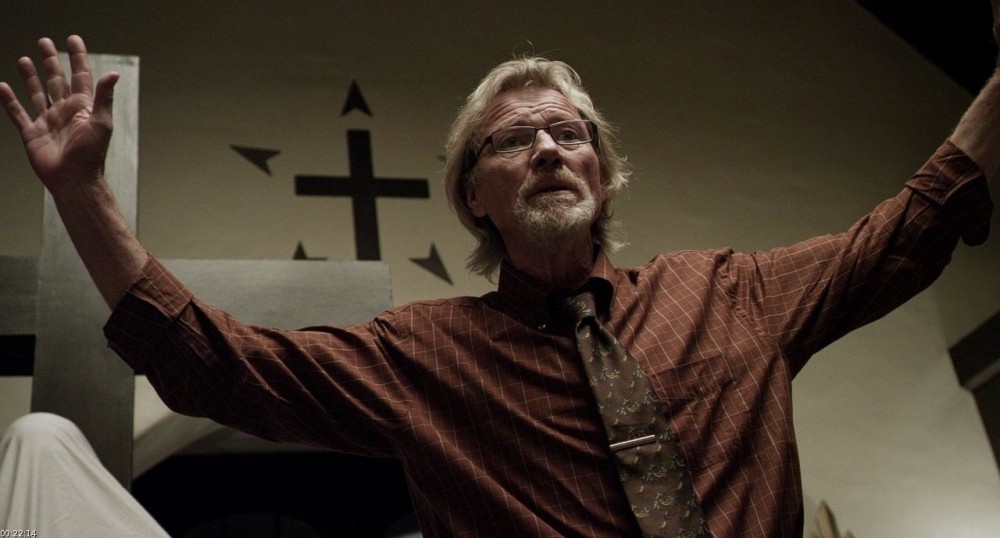
Jarod, who has been transported to the church in a dog cage, gets a bird's eye view of what Abin Cooper is all about as he listens to the preacher deliver a smooth 10-minute sermon that could make believers out the biggest non-believers out there. His words are like liquid gold, but what makes a guy like Cooper so dangerous is that without even so much as batting an eye, he's able to lead his congregation in singing a holy hymn while ordering the men in the church to execute a young man bound to a cross without ever breaking his smile. The manner in which Cooper and his followers kill off the "trash" of this world is incredibly shocking, as they bind their intended victim in a cocoon of plastic wrap, and "the homosexual sinner" is finished off with a brutal gunshot to the head.
After seeing Cooper's followers savagely murder the young man in the name of "God's Will" right before his very eyes, Jarod realizes that he's in some pretty deep shit at this point. What Jarod's unaware of is just how deep that proverbial poop truly is because it just so happens that Cooper and his followers have recently been under the watchful eye of the ATF for illegally purchasing semi-automatic weapons.
After a local sheriff reports to the ATF's Agent Keenan (John Goodman) that his deputy's been shot by someone at the reclusive Five Points compound in Cooper's Dell, Keenan and his men show up to take the fundamentalists down in a blaze of gunfire after the same local sheriff unwittingly triggers a showdown at the compound. Chaos, confusion, and a copious amount of bloodshed follows throughout Red State’s third act.
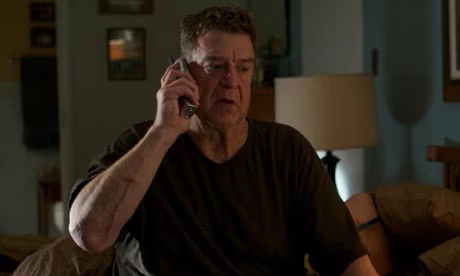
No stranger to controversial topics, Smith addresses several hot-button issues head-on like a freight train in Red State. Throughout the film, he explores the power of religious fanaticism and its aggressively awful views of homosexuality, the need for gun control, and how the government treats “other” establishments that they do not explicitly control. This is all pretty heady stuff for a horror flick, which is why I'm inclined to say Smith's work in Red State skewers more toward the outskirts of the genre rather than delivering a straight-up horror movie. No matter how you classify it though, Red State demonstrates that sometimes there are very few things scarier than what's happening in real life.
And sadly, that’s something that feels horribly relatable these days (which, considering this is a movie released more than a decade ago, it makes Smith’s work oddly prescient in a myriad of ways).
I'm not sure if it was ever outright declared or not, but I don’t think it’s a huge leap to believe that the inspirations behind the fictional Five Points Trinity Church in Red State had to be partially based on the events of the Waco siege in 1993 as well as the real-life fundamentalist Westboro Baptist Church located in Kansas. Led by Fred Phelps, Westboro is infamous for picketing homosexual funerals and protesting other events in an effort to spread their anti-gay hate rhetoric (Phelps thankfully died in 2014, but the church still remains to this very day).
These aren’t issues that can be handled through the slightly absurd lens that Smith often utilizes in his work, and the maverick indie filmmaker smartly leaves his sense of humor behind in Red State. The movie is better for it.
Something else that really impressed me when I was recently rewatching this is that Smith doesn't take the easy road in Red State with his portrayal of fanatical preacher Cooper, nor his easily-led followers. Rather than write the fundamentalists as thinly veiled caricatures (much like religious fanatics in real life are often portrayed in the media), he actually makes them into relatable (albeit completely unhinged) people. Kinda feels relevant in some ways these days, no? But when you hear Cooper talk, it's not hard to understand why people might blindly follow him.
Even though it would be easy to think that a guy like Smith would give the proverbial middle finger to Westboro by making the believers at Cooper's Dell into the bad guys, Smith twists things up a bit and his approach to the controversial subject matter makes sure there are no heroes and no villains to be found at the conclusion of Red State. It’s all just awful, and maybe that’s the point.
Sure, there is no doubt that what Abin Cooper preaches at the Five Points Trinity Church is nothing but pure evil (and twisting every sort of religious notion in ways that support his hate-filled teachings is utterly disgusting), but in Red State, who is ultimately right and wrong in this story is something of a very gray area by the end because you pretty much are angry about all of it.
After all, we see in the film that Agent Keenan is ordered by his superiors to take out every single person on the compound, including small children just to cover up their botched gun raid at Cooper's Dell. And how do you justify killing children, even if they are associated with these monstrous adults? They aren’t old enough to be able to do anything to change their situations, and these kids lack the agency to stand up to the adults either, so why should they pay the ultimate price here? How is that okay? (Hint: it isn’t.)
It’s interesting but back when I first reviewed Red State, I was rather critical of the fact that Smith doesn’t fully commit to determining who the real bad guys are here, never claiming a moral victor, which I thought left the messaging of the film feeling muddled. But after sitting down with the film again, and having a better understanding of the world, especially in the wake of everything that has happened over the last 10 years, it’s not hard to see that in certain circumstances, sometimes there are no heroes: there are just bad guys and then there are the really bad guys.
I also remember not being a fan of Red State’s finale either back then, but considering where the world was in the early 2010s versus what we’re contending with now, I guess that version of me still believed in certain institutions, and these days, I’m not dumb enough to believe in any of that anymore. What once felt implausible now feels likely, and perhaps I had set different expectations for Red State than I should have at the time.
It’s not a perfect film by any means but I think that Smith does his best to explore the complicated themes and concepts at the heart of Red State with the best of intentions, and it’s a movie that sadly feels way more relevant to me and the world at large now than it did when I saw it in 2011. Plus, Red State also features several of the best genre performances of that year with Parks, Goodman, and Gallner (Kyle truly shines when given the opportunity here) who all add so much and truly elevate Smith’s script that sometimes loses its focus, especially in the latter half.
This isn’t a movie that will work for everyone, but what I will say is that I just hate how relevant Red State feels today. It shouldn’t be like this.
